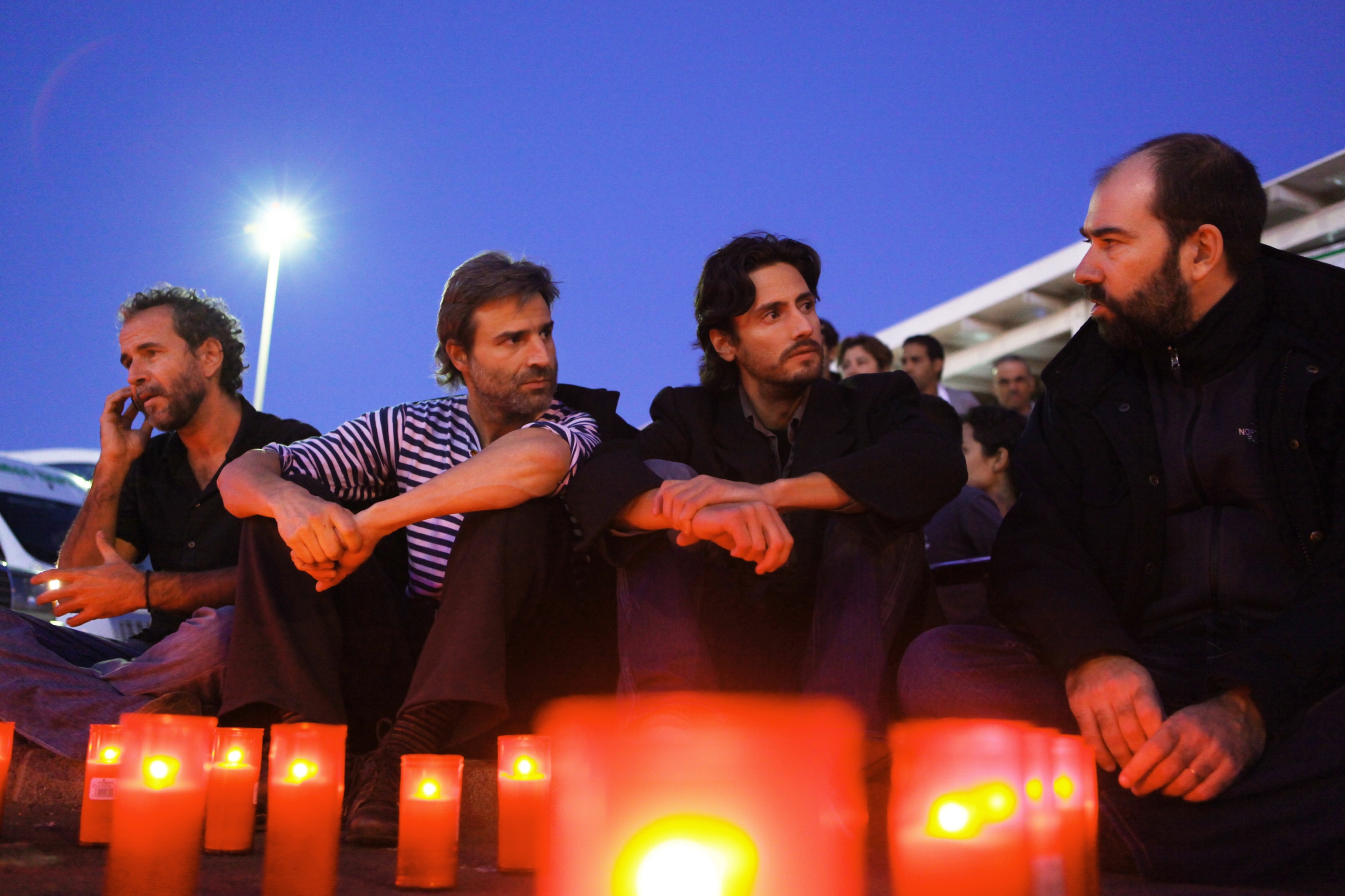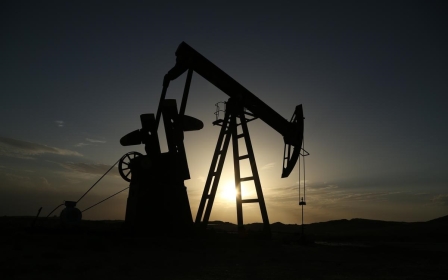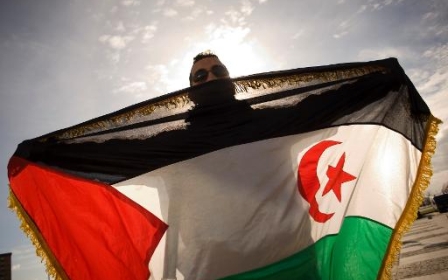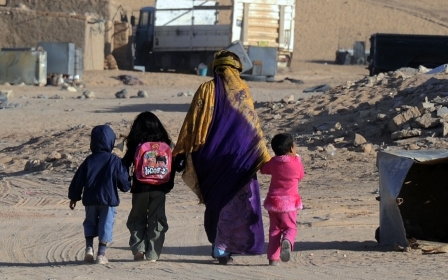Torture and death: a political prisoner's story in Western Sahara

Amnesty International on Wednesday broke news that seven Sahrawi hunger strikers had ended their fast, reportedly after being promised better prison conditions, but the victory is a small one and only helps to illustrate the wider abuses going on behind the scenes in the Western Sahara.
Last Sunday, Moroccan security forces arrested six Sahrawi demonstrators in the occupied territory of Western Sahara after protests broke out in response to the death of a hunger striking Sahrawi prisoner, Hassana al-Wali.
Veteran activist Wali died in a military hospital in Western Sahara’s second city, Dakhla, on 27 September. He was said to be seriously ill as a result of the hunger strike, and slipped into a fatal coma while in custody. Wali was an active member of the pro-independence indigenous Sahrawi movement and was also known for his human rights work on torture and police brutality.
Western Sahara is a United Nations designated non-self-governing territory that has been subject to an occupation by Morocco since it invaded in 1975. Morocco, however, claims the territory forms its “southern provinces” and is part of a historic “greater Morocco” with Rabat maintaining near full control of the area.
The Sahrawi government in exile, the Sahrawi Arab Democratic Republic (SADR), opposes the occupation and claims that 30 Sahrawi political prisoners have gone on hunger strike this year alone.
Mistreatment and abuse
The story of Wali’s death begins with his arrest during demonstrations linked to the Arab Spring uprisings. He was detained and sentenced to three years’ imprisonment for his involvement in pro-independence, anti-government protests in Dakhla in November 2011.
According to one Sahrawi who had contact with Wali and his close friends and who requested anonymity for security reasons, Wali suffered mistreatment by the security forces that arrested him. The Moroccan forces broke his arm and inflicted other injuries, with the individual obtaining images that show the extent of the abuse.
After being sentenced to jail for “participation in an illegal demonstration” and “forming a gang”, Wali was taken to a detention facility in Western Sahara’s would-be capital city Laayoune. It was there, in a facility known as the Carcel Negra (Black Prison), that Sahrawi sources say that Wali first began a hunger strike to protest his torture at the hands of security forces.
Wali was moved from the Carcel Negra to Dakhla prison in June 2013 where his health began to deteriorate. His broken arm had never fully healed, due to a lack of access to medical care, and the general conditions of the prison in Laayoune were extremely poor. In September of this year, his health again seriously worsened under the strain of a renewed hunger strike over prison conditions.
But according to Sahrawi activists from Dakhla, it was only after persistent pressure from friends and family that Wali was eventually taken, in custody, to a civilian hospital and then a military hospital in the city. He died shortly after arriving at the military facility.
“I knew Hassana for decades, he was a brave campaigner, especially on the issue of removing the landmines laid by the Moroccan army in Western Sahara because his father was killed by a landmine,” said Mohammed al-Baikam, the secretary-general of the fishing associations of Dakhla and a friend of the deceased.
Wali’s activism saw him meet with international delegations that visited Western Sahara. He received a European parliament delegation in 2009, and met with an independent UN expert on cultural rights, Farida Shaheed, months before his incarceration in 2011.
“The Moroccan government wanted him in prison for years because of his stand against torture and police violence, they wanted him silenced and now they have finally succeeded,” Baikam told Middle East Eye.
According to Baikam, Wali was subjected to serious torture in Moroccan detention facilities. His account details how Wali was hung from the ceiling by his feet and beaten with a stick, forced into a humiliating stress position known as the “chicken position”, and given electric shocks.
Sahrawi friends of Wali also claimed he was treated with negligence in the runup to his death, and that he wasn't given access to proper medical treatment. They claimed that only cursory checks were performed despite his bad health, and that the only treatment he received was a dose of glucose administered by injection, which resulted in him lapsing into the coma that killed him.
The authorities have denied this and the Moroccan Délégation Générale de l'Administration Pénitentiaire (General Delegation of the Prison Administration) in Dakhla insisted that Wali was treated appropriately.
“The deceased had received throughout the period of his detention necessary care, with a number of medical examinations and treatments... he enjoyed good health and had not complained of any chronic disease,” the organisation said in a statement.
“He underwent an endoscopy in l'hopital Hassan II last Thursday before entering suddenly into coma,” the statement added.
But Baikam continued to assert that the prison authority’s statement is incorrect. “The next day the family asked the wali [governor] of Dakhla for an autopsy and were met with complete refusal, then the wali offered them money to have the body buried without one,” Baikam said. “Why would they do that if he was properly treated?”
The Moroccan government told Middle East Eye that the attorney general’s office has been informed of Wali’s death in custody and is awaiting an autopsy.
Juan Mendez, the United Nations special rapporteur on torture, visited Morocco and Western Sahara in September 2012 to assess claims that the conditions in Moroccan prisons were unacceptable and that Moroccan authorities were using torture.
Unacceptable conditions
“In Western Sahara we documented cases of serious torture by combining credible accounts with forensic evidence,” Mendez told Middle East Eye.
“The prisons were overcrowded and living conditions were precarious, but much of the serious torture was in fact happening before detainees got to prison.”
Before his incarceration, Wali was a senior member of the Sahrawi Association Against Torture, and while in prison in Laayoune, his family said he was interviewed by Mendez.
“I don't remember meeting Hassana specifically, but I met with many prisoners in Western Sahara and it is very likely I met him,” Mendez said.
Mendez also said that Sahrawi activists in favour of independence and separation from Morocco were being treated like detainees held on terrorism charges.
“Torture was not for everyone, it was being used in the high-profile cases: against terrorism suspects, and against members of the separatist movement [pro-independence Sahrawi]. It was consistent and could be very severe,” he said.
“I will be writing to the Moroccan government to make an enquiry about what happened here,” he added.
Amnesty International has also documented the use of torture by Moroccan security forces. On 19 September they reported that seven more Sahrawi men who were “severely beaten” in the courtyard of a Moroccan jail in Western Sahara had started a hunger strike. The men ended the strike this week after being promised better conditions by the authorities, but their cases is just one of many.
The organisation has detailed numerous instances of Sahrawi prisoners going on hunger strike to protest police brutality and ask for better conditions. However, mistreatment and torture continue.
The methods of torture documented by Amnesty Intentional include stripping detainees naked and beating the genitals and soles of the feet. They also found evidence that the police were suspending detainees by the wrists while beating them; gagging prisoners with urine-soaked materials; using prolonged solitary confinement; and using sexual violence, including rape with bottles.
Eyewitnesses in Dakhla have said that there is currently a heavy police, military, and auxiliary forces presence in the city, designed to stop demonstrations in front of the military hospital where Wali died. They also stated that there have been large clashes between police and Sahrawi residents, and that protests that have been held despite government efforts to keep people off the streets.
“Hassana Wali was treated terribly in prison, like an animal. His condition was getting worse, and he was left without any mercy in his cell despite his requests,” said Mohamed Sidati, the Sahrawi representative to the EU from the SADR government in exile.

In light of Wali’s death, Sidati has decided to call on the European Union for support in investigating the treatment of Sahrawi prisoners in Moroccan-controlled Western Sahara.
“Given the European Union’s close relationship with Morocco they cannot continue to stand idly by. The European Union must use its influence and all the tools it has available to put an end to the Moroccan authorities exacting flagrant abuses on the Sahrawi prisoners’ human rights,” he wrote in a 29 September letter addressed to the European parliament and the European commission.
Sidati added in the letter that Wali was subject to cruel treatment because of his political views and human right advocacy after a politically motivated sentence, and that there should be no impunity for those responsible.
“We are calling for an international investigation to be opened because we believe the EU has the influence to push to determine and punish those who were involved in the death of Hassana Wali,” he said.
The Conseil Royal Consultatif pour les Affaires Sahariennes (CORCAS), an advisory committee set up by the Moroccan palace, did not respond to repeated requests for comment on either Wali’s death, or the use of torture by Moroccan security forces.
The Moroccan government's official spokesperson did not respond to requests for comment on torture in detention facilities in Western Sahara.
There are currently believed to be more than 70 political prisoners held by the Moroccan government in detention facilities in Western Sahara and Morocco.
Update 6 October 2014: On the evening of 4 October, Hassana al-Wali's body was buried by the local Moroccan authorities without the presence or consent of his family.
Middle East Eye propose une couverture et une analyse indépendantes et incomparables du Moyen-Orient, de l’Afrique du Nord et d’autres régions du monde. Pour en savoir plus sur la reprise de ce contenu et les frais qui s’appliquent, veuillez remplir ce formulaire [en anglais]. Pour en savoir plus sur MEE, cliquez ici [en anglais].




